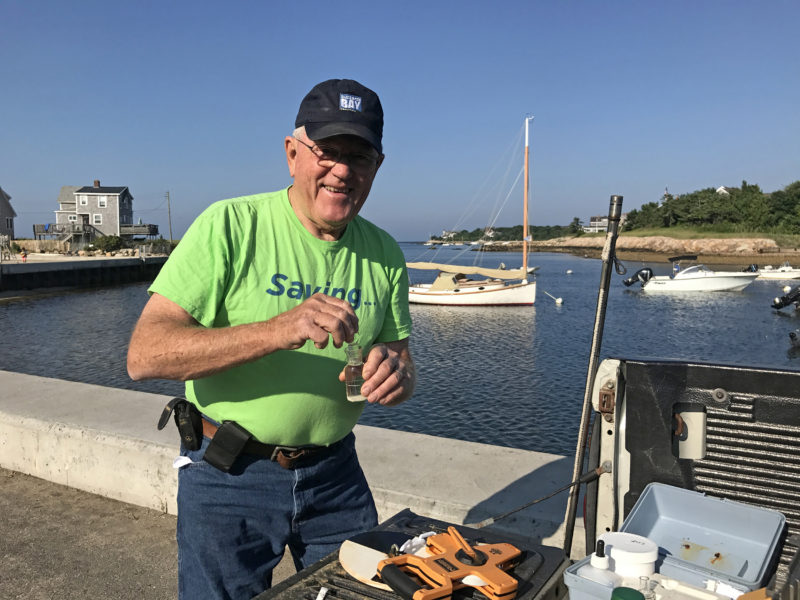2 ways you can take action to protect clean water this spring
Buzzards Bay needs your help this spring! The Massachusetts state legislature is considering two issues that would advance efforts to protect clean water in Buzzards Bay. You can take action today by contacting your elected officials and voicing your support for these efforts. (Find your local legislators’ contact information.) A few quick calls or emails can make all the difference for the future of Buzzards Bay.
1. Advocate for funding for Buzzards Bay monitoring

The Coalition’s Baywatchers program has kept a watchful eye on the health of your local waterways for the past 26 years.
Tell your state representative and senator to make funding for coastal water quality monitoring in Buzzards Bay and Vineyard Sound a priority in this year’s state budget. This critical funding supports the Coalition’s Baywatchers program, which has kept a watchful eye on the health of your local waterways for the past 26 years.
Contact your state representative and senator and ask them to support funding for coastal water quality monitoring in Buzzards Bay and Vineyard Sound. Your calls have helped secure this funding to the budget in the past.
The House and Senate are considering a total of $125,000 to support the Baywatchers program. Data collected through this water quality monitoring program forms the foundation of all our work to save Buzzards Bay — such as recently released nitrogen pollution cleanup plans for the Westport Rivers and four Falmouth waterways. These cleanup plans used Baywatchers data to set a course for action to clean up pollution and restore clean water.
2. Support legislation for loans for nitrogen-reducing septic system upgrades
Septic systems are Buzzards Bay’s largest source of nitrogen pollution. Even properly functioning Title 5 septic systems cause pollution problems because they aren’t designed to remove nitrogen.
Massachusetts residents can take advantage of low-interest loans to repair or replace their failing home septic system. Rep. Paul Schmid of Westport has filed legislation that would allow homeowners who want to upgrade to nitrogen-reducing technology to qualify for these loans.
Contact your state representative and House Speaker DeLeo and ask them to support House Bill 4042 to extend low-interest septic system repair loans to residents upgrading their septic systems with nitrogen-reducing technology.
These low-interest loans would benefit thousands of local residents who want to make the right choice and reduce nitrogen pollution from their septic systems. Combined with decreasing costs for nitrogen-reducing technology, these loans could make a big difference to reduce pollution to our coastal waters.